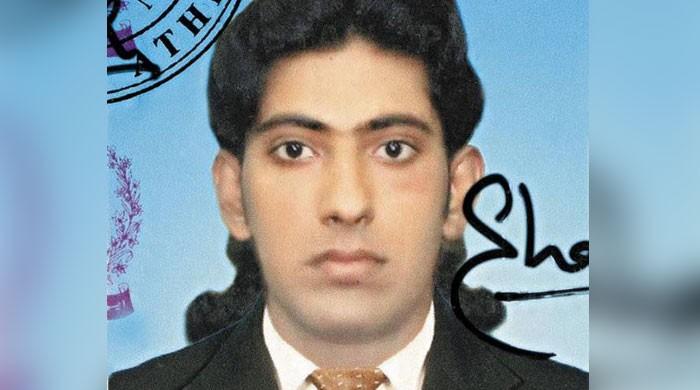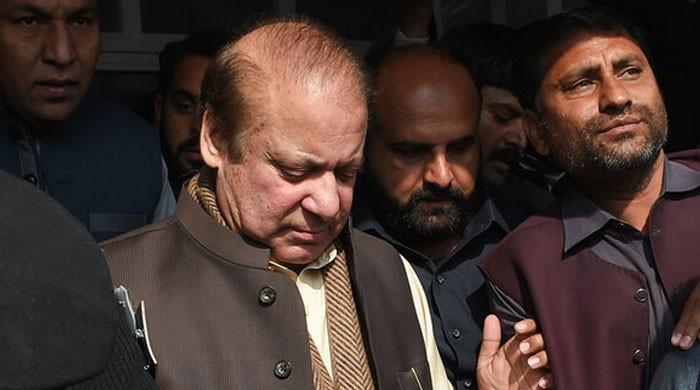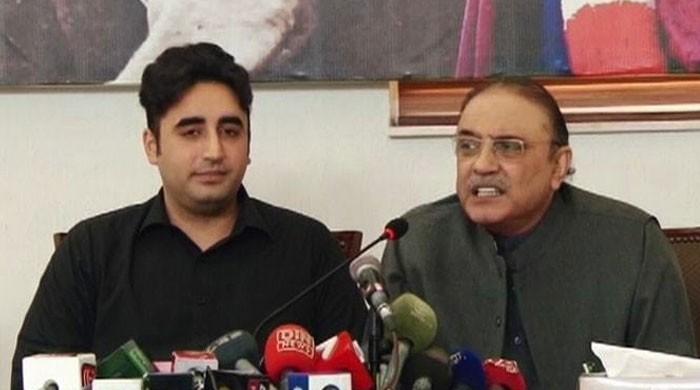The Supreme Court on Monday sought details of at least 100 persons who had been issued notices by the Federal Board of Revenue (FBR) for not disclosing their assets and properties abroad, after the court was informed that the Pakistanis owned properties worth $150 billion in the United Arab Emirates (UAE) alone.Over 7,000 Pakistanis own properties worth over Rs700b in the United Arab Emirates (UAE). They include former high-ranking military officials, politicians, bureaucrats, owners of media houses and journalists.
Most people have bought the properties in the name of their children.
A three-judge bench, headed by Chief Justice of Pakistan Mian Saqib Nisar, asked FBR chairman Mohammad Jahanzeb Khan that the information be provided to the SC registrar directly at his office in a sealed envelope. In case of any leak, the CJP cautioned the SC registrar and the FBR chairman that they would be held responsible. He added that the court did not want to malign or stigmatise any individual.
The observation came when the FBR chairman apprised the SC that it had issued notices to individuals possessing 225 properties in the UK and Shabbar Zaidi of A.F. Ferguson said properties worth $150 billion in the UAE were owned by Pakistanis.
The court had initiated suo motu action on reports about illegal money transfer from Pakistan to other countries when it came to its notice that a large number of citizens were maintaining accounts in other countries without paying tax on the money or disclosing it to the relevant authorities.
FBR chief informs apex court notices have been issued to individuals possessing 225 properties in UK
A report furnished before the court also highlighted top tax havens with estimated $100 billion stashed in the UK, the US and European Union in addition to the money parked in real estate there, besides $200 billion kept in Switzerland (as per the statement of Swiss Foreign Minister Micheline Calmy-Rey) as well as Hong Kong, BVI, Bahamas, Channel Island, Seychelles etc.
Appreciating Mr Zaidi’s efforts, the court asked him to render assistance to the court for bringing the capital back to Pakistan. The court observed that foreign currency accounts and illegal means of Hawala were mostly used for the transfer of money abroad.
During the hearing, Justice Umar Ata Bandial explained that the persons being discussed were the ones who had amassed wealth in Pakistan and transferred it to other countries through illegal means. The judge also deplored that the terms of reference (ToR) proposed for bringing back the stolen money from abroad were too mild for those who should have been penalised.
Referring to the Foreign Assets (Declaration and Repatriation) Ordinance 2018, Justice Bandial said a similar scheme was launched in Indonesia where 15 per cent tax was imposed but the government could collect a mere $8.1 billion, which was nothing, despite offering two per cent tax incentive.
Strong recommendations should have been made in the ToR, Justice Bandial observed, adding he expected the proposals to contain proper legislation for forfeiture of the properties and the assets of those guilty.
The CJP said these were not ordinary times, as considerable earnings without payment of tax had been transferred abroad. He said the court was not being taken into confidence despite the fact that the matter had been initiated seven to eight months ago.
State Bank Governor Tariq Bajwa assured the bench that monthly reports would be furnished in the apex court after those who amassed assets abroad were issued the notices. He also informed the court that Prime Minister Imran Khan had also been briefed on Hundi and Hawala on Monday, as the government was trying to find a way forward. The court then asked for record to see outcome of the meeting.
The newly appointed Attorney General Anwar Mansoor Khan told the court that the new government had constituted a task force on Aug 27 in which representatives of the State Bank of Pakistan, the National Accountability Bureau (NAB), Security and Exchange Commission of Pakistan (SECP) were also included. The purpose of the task force is to develop proper legislation to suggest ways how to go after such individuals to recover the money.
Keeping in view the interest of the apex court as well as the people of Pakistan, the AG explained, the new government was very serious about the issue and would go in its own direction. However, he suggested the court to continue to seek reports from the departments concerned to discourage them from showing slackness in this regard.
Top money laundering source countries
In a set of recommendations on the scope and ToR, a report explained that the British government through a National Crime Agency Report for 2018 had listed Pakistan among the top three money laundering source countries after Nigeria and Russia.
Therefore, it is imperative to make out an assessment of the total Pakistani money stashed in the foreign assets and accounts.
The report said the Federal Investigation Agency (FIA) till date had taken cognizance of 2,750 undisclosed properties of Pakistani nationals held in the UAE in different names and inquiries were under way. If each property was valued at an estimate of Rs40 million, the value of assets in the UAE under inquiry with the FIA would be worth Rs100 billion, which was 2.5 per cent of Rs4,240 billion — the value of officially known assets of Pakistanis in the UAE.
It said FIA’s anti-corruption wing instituted 54 criminal inquiries under the Foreign Assets Declarations Regulations 1972 against 662 of 3,549 property holders.
Dubai’s famous construction company and developers, Emaar Properties, has issued lists, containing the names of 34,000 individuals, and 3,550 of them are Pakistanis. Most of them are living in Dubai or Pakistan currently, according to the addresses given in the list.
FIA Director-General Bashir Memon told The News that the list was very long, and they were working on it. After initial investigation, it would be decided what kind of action would be taken on those listed in it.
The list is not authentic, but it has nine columns, which carry details including names of the owners of properties, addresses, mobile telephone numbers, landline numbers, email addresses, project names, property names and nationality. The last column carries word Pakistani for the property-holders who have a Pakistani passport.
The property dealers said the list had not been issued by the Dubai government. In such a case, Pakistani people would sell their properties off and withdraw their investments. The list shows the Dubai address of over 2,000 Pakistani owners because they either bought the property after coming to Dubai or already reside in the Emirates. However, there are over 800 names with addresses in Pakistan – Punjab 300, Sindh 400, Islamabad 50 and the rest from Khyber Pakhtunkhwa and Balochistan.
Property dealers say though the list hasn’t been issued by the Dubai government [because in that case these Pakistani will transfer their money after selling the properties], it is authentic if it is from a big government construction company and developers.
One of them says if it is issued by Emmar or the Dubai government officially then its authenticity would only be confirmed after it reaches court, as photocopy or duplicate papers don’t authenticate its status.
Another property dealer asked how could a company release such a list when it was damaging to the government as well. He said that it could only be verified in court. Some others said the FIA had never presented even 10 names with original documents so far to make an example out of them.
Meanwhile, some estate agents were of the opinion that the list was authentic and would be proven true when discussed in court. It is worth mentioning here that the list of 300 Pakistanis, released last week, was being processed for the last one year. Now, while 3,550 Pakistani property-holders in Dubai have been issued notices, question arises how the FIA would be able to deal with such a large number of people at a time. How much manpower would be required to deal with the situation?
Secondly, there might be a large number of people, who might have bought these properties legally; they might have inherited them, or they might have sold their properties out already. In such circumstances, they would be under immense mental pressure and facing harassment.
In the second case scenario, there might be a large number of people who would not be able to prove from where they got the money to buy those properties. A large number of cases would be registered in the country if such individuals failed to prove how the money was sent abroad for purchase of those properties.
In the long 64-page list, most Pakistanis own one or two properties. However, some hold six to 19 properties in their names. For example, a woman Farheen Saleem owns 14 flats in a project. One Zubair, a resident of Lahore, owns 19 properties. His cell-phone (00971-504965---) was found switched off when an effort was made to contact him. Attempts were made to contact 50 people on their telephone numbers. Most of them were found switched off; on others, calls were not attended despite the phones being functional.
A property owner, Abbas Hussain Mirza (phone number 10300-8558---) attended the call. After listening to the question and introduction of the reporter, he said: “I don’t want to talk to you.” And then said: “I own no property in Dubai, thanks”, and disconnected the call.
A Karachi-based owner of two properties A Majeed (Phone number 0300-8262---) said: “We had received FIA notices; we appeared before the authorities and justified our ownership.”
One of the 50 individuals was Abdul Karim (0300-8503---), who did not attend the phone call. Phone set of one Hafeez Sheikh (0300-2625---) was found switched off. Hannan Sheikh (0300-8245---) switched off, Najeeb Anwar (0321-8221---) switched off, etc.
The list carries addresses of over 2,000 Pakistanis in Dubai, 800 have addresses in Pakistan; of them 300 are in Punjab, 400 in Sindh, 50 in Islamabad, and remaining have addresses in Khyber-Pakhtunkhwa and Balochistan.
On the other hand the persons, who have been issued notices, have described the list as well as practice being carried out by the FBR as farce. When some individuals named in the list were contacted, they said that they inherited the properties and later sold them out. Some said that they had declared their properties with the FBR.
Some said that they had no property in the UAE, but their names were mentioned in the list. They said that it can be understood that many other names could have been included in the list in the same manner.
Few people said that Pakistani authorities can't seek any details from them as they had residency visa of the UAE and all their properties have been acquired through legal means. Some respondents termed the FBR list farce, saying that the UAE authorities will not ever release names of investors in such a manner, as it will shake investors' trust and they will feel the Gulf state insecure for their investment.
However, the majority of those who were contacted by this correspondent said these properties were not owned by them. Some people said these properties were of their forefathers and they sold them. The authorities can’t question us as we have declared them lawfully and they were legal.
Some people even expressed surprise over their names on the list. One of these men said the UAE can’t give such a list because this sort of step could damage its economy, and people will consider their investment there unsafe. They will also pull out their money. Some people said people wrongly registered by the FIA are facing problems.
The complete list of people whose names have been brought forward can be checked on The News website www.thenews.com. However, their complete identification is not being presented. The complete identity of these people will be given after the list stands fully authenticated.
Latest News

Topstory

Opinion

Newspost

Editorial

National

World

Sports

Business

Karachi

Lahore

Islamabad

Peshawar
Tags:
Properties












